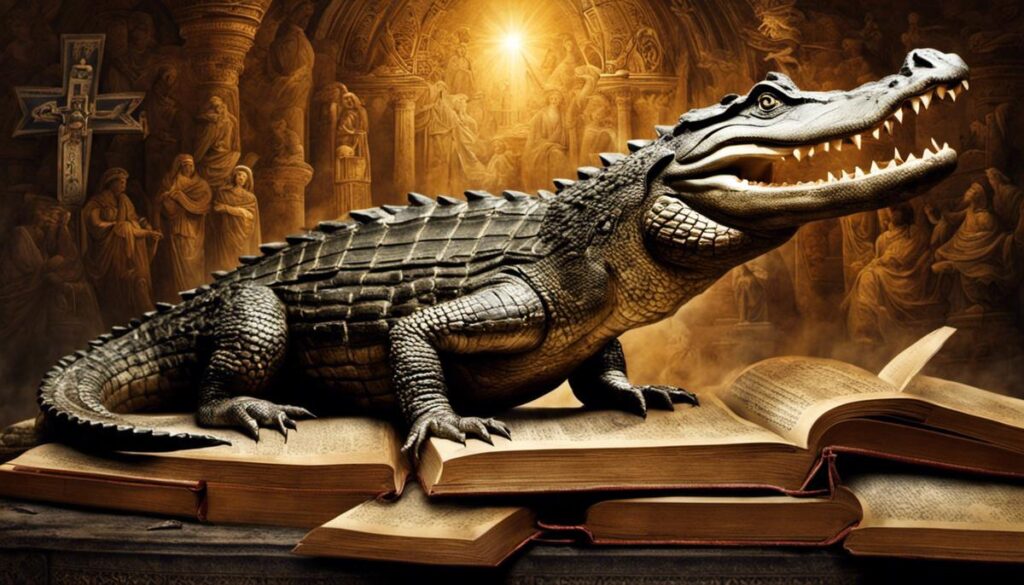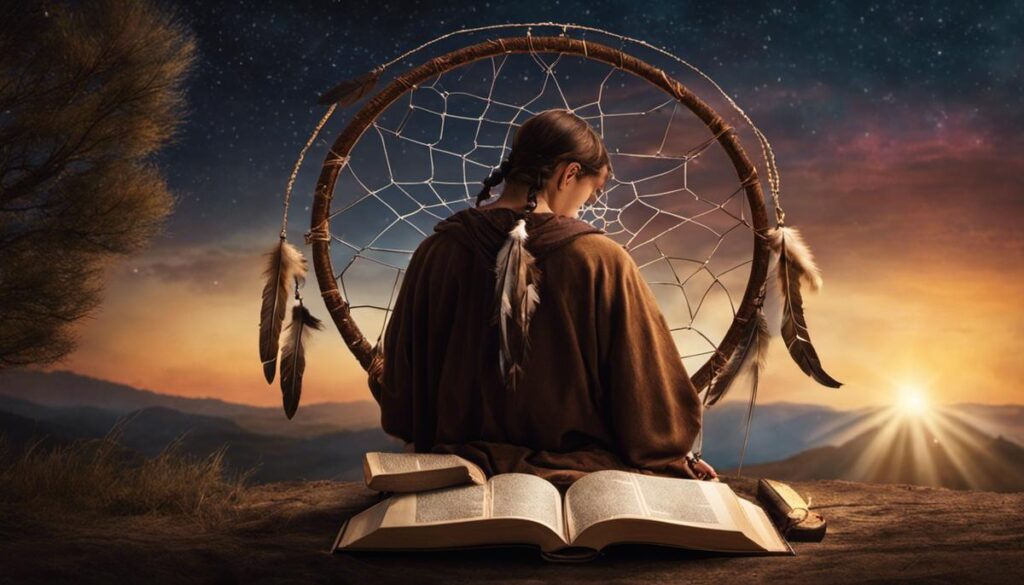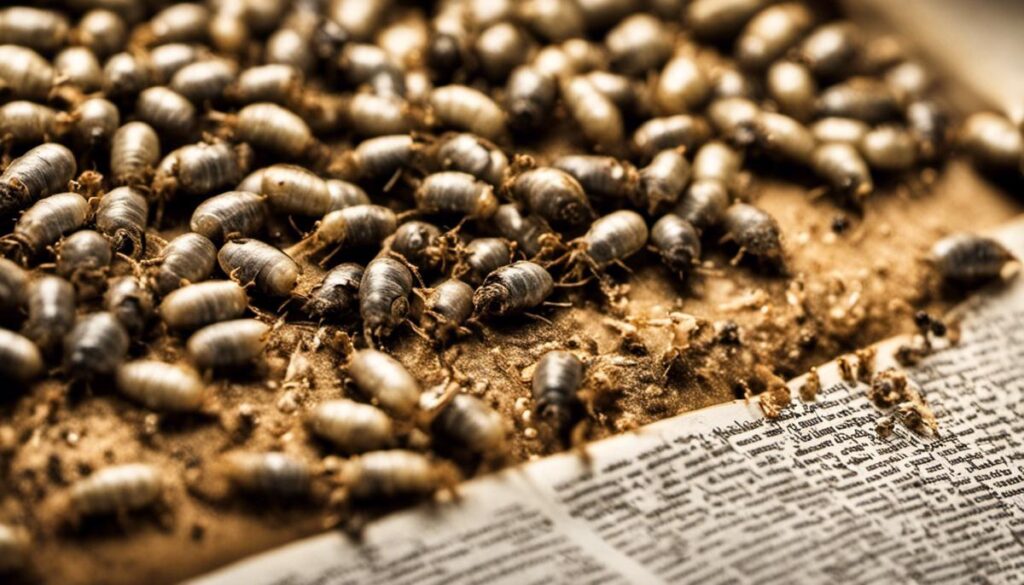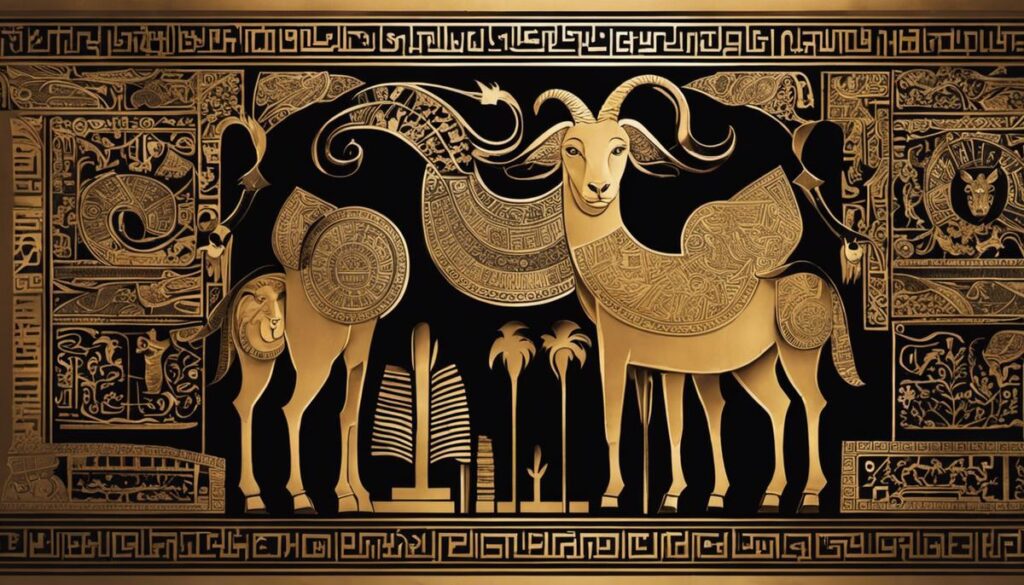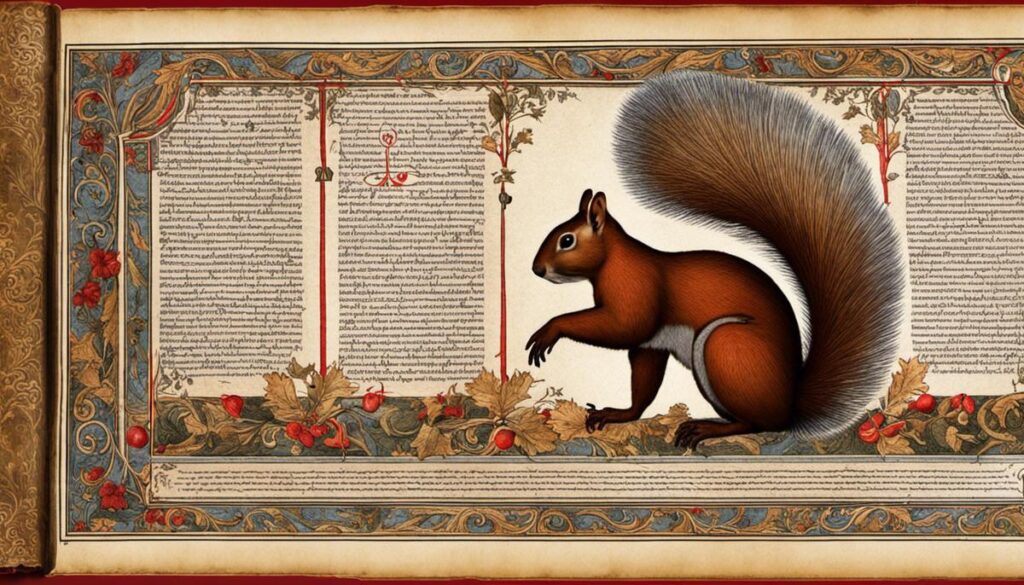Our dreams are a gateway to the subconscious, often painting vivid, obscure narratives that beg for interpretation. An age-old symbol that presents itself in dreamscapes is the elusive crocodile, an animal that has a deep-rooted presence in the Bible. In this exploration, we will embark on a journey through religious text, discerning the cultural relevance and context of crocodile references within the scriptures. We will span across societies and history to understand the global symbolism of croodiles in dreams, laying a comprehensive foundation for our inquiry. Building on this, we will navigate the ethereal sphere of biblical dream interpretation, and finally, reach the core of our investigation: the Biblical meaning of crocodiles in dreams. Our expedition will not end there; in a contemporary twist, we will decode how these interpretations find their place in modern Christian spirituality.
Biblical References to Crocodiles
Crocodiles in Biblical References: Significance and Symbolism
From the vantage point of an individual steeped in the dual worlds of theology and zoology, references to animals in ancient texts often hold profound significance beyond their literal representation. Notable among such creatures of symbolic resonance is the crocodile, whose Biblical references paint a vivid picture of its exceptional potency within the cultural and religious milieu of the era.
The book of Job, considered one of the oldest texts in the Bible, provides us with the most detailed reference to an animal appearing remarkably akin to the modern crocodile. Here, it is identified as the ‘leviathan,’ a term of Hebrew origin connoting a multitude of sea creatures. In Job 41, the Leviathan is depicted as virtually indestructible, immune to all human weapons, and emanating a sense of terror to all who encounter it. Its strength and fearlessness project onto it a divine quality, making it a symbol of an omnipotent deity transcendent of human comprehension.
An analysis of the Leviathan’s physical description in Job presents compelling parallels to the formidable traits of a Nile crocodile. The creature’s scales are tough and impenetrable, ‘shut up closely as with a seal,’ and its sneezings flash forth light together with its eyes which are ‘like the eyelids of the dawn.’ It is these characteristics that have driven systematic theologians and scholars to draw associations between the Leviathan and the Nile Crocodile, a creature laden with both fear and fascination for early Semitic communities.
Profoundly, the crocodile can be interpreted as an image of divine control and omnipotence. Its depiction suggests it is beyond the realm of human manipulation, reinforcing the omnipotent nature of the deity. The Leviathan’s comparison to ‘sons of the godly,’ further suggests a connection between this beast and divine judgement, with its invincibility serving as a reminder of humankind’s vulnerability and submissiveness to the divine power.
In Ezekiel 29:3-5, another potential reference to a crocodile surfaces as part of a prophecy against Egypt. ‘Speak, and say, Thus said the Lord GOD; Behold, I am against you, Pharaoh king of Egypt, the great dragon that lies in the midst of his rivers.’ Given the prevalence of the Nile crocodile in ancient Egypt, the ‘great dragon’ is often equated to a crocodile in this context. The Pharaoh’s comparison to it underscores the impending doom and divine judgement awaiting the Egyptian king.
In the shadowy depths of ancient rivers, through snarled teeth and armored scales, the significance of the crocodile in Biblical corpus extends beyond its literal existence into a realm of symbolism. Residing in these creatures is the symbolic embodiment of divine superiority, judgment, invincibility, and the recurrent reminder of human subservience to an omnipotent deity. The challenge lies in deciphering these ancient texts, seeking to illuminate the understanding of our own place within the grand scheme of nature and divinity.

Symbolism of Crocodiles in Dreams
Navigating further from biblical interpretations, the crocodile emerges as a curious symbol in ancient Egyptian dreams, a culture deeply connected with this creature. The Egyptians venerated the crocodile as the embodiment of the deity Sobek, who represented military vigor, fertility, and pharaoh’s power. Quite contrarily to the idea of divine judgment, dreaming of a crocodile in ancient Egypt augured an influx of power or conceiving a child. Undoubtedly, these differing cultural interpretations reflect the importance of context in dream symbology.
Beyond biblical and Egyptian connotations, the trope of the crocodile extends into the worldview of Indigenous Australians. Known colloquially as the ‘saltie,’ crocodiles hold multiple significances in the Indigenous dreamtime- the mythical time of the world’s creation. Their narratives differ considerably, some view the crocodile as a spiritual protector who maintains the ecological order. Simultaneously, dreams revolving around a crocodile theme are infrequently perceived as warnings against lurking danger, given the creature’s typically predatory nature.
Shifting our gaze to Greek mythology, we find the tale of the giant crocodile sent by the god Apollo as punishment for the Cassandra prophecy disbelief. In contemporary Greek dream interpretations, the motif of a crocodile often symbolizes an obstacle or a hard situation – resonating with its biblical symbolism. Additionally, feelings of fear, anxiety, and uncertainty accompanying a dream of a crocodile find congruence across cultures.
Within the broad-ranging Chinese cultural context, the crocodile holds dual symbology in dreams. On one hand, sighting a crocodile forebodes luck, wealth, and career prosperity. On the other hand, dreaming about being chased or bitten by a crocodile symbolizes stumbling blocks in personal relationships or work settings. Could this dual interpretation mirror life’s inherent flux, indicating both abundant opportunity and unanticipated challenges?
In the African sphere, where the crocodile is an integral part of the ecosystem, it symbolizes hidden strength and power in dreams. However, as with other cultures, the undercurrent of danger it represents persists, and dreams about crocodiles sometimes signify warnings against unseen adversaries.
In conclusion, the interpretation of the crocodile in dreams is multifaceted, transcending across various epochs and cultures, reflecting the human tendency toward attributing meaning to the native fauna and ecosystems they inhabit. It’s essential to acknowledge that dream interpretation is subjective and highly influenced by cultural nuances, from biblical allegories of divine power and judgment to the dual interpretations in Egyptian and Asian dream symbolism. With its roles as a protector, a symbol of power and fertility, and a harbinger of looming danger, the crocodile truly epitomizes our complex relationship with nature and our endeavours to decode the enigmatic realm of dreams.
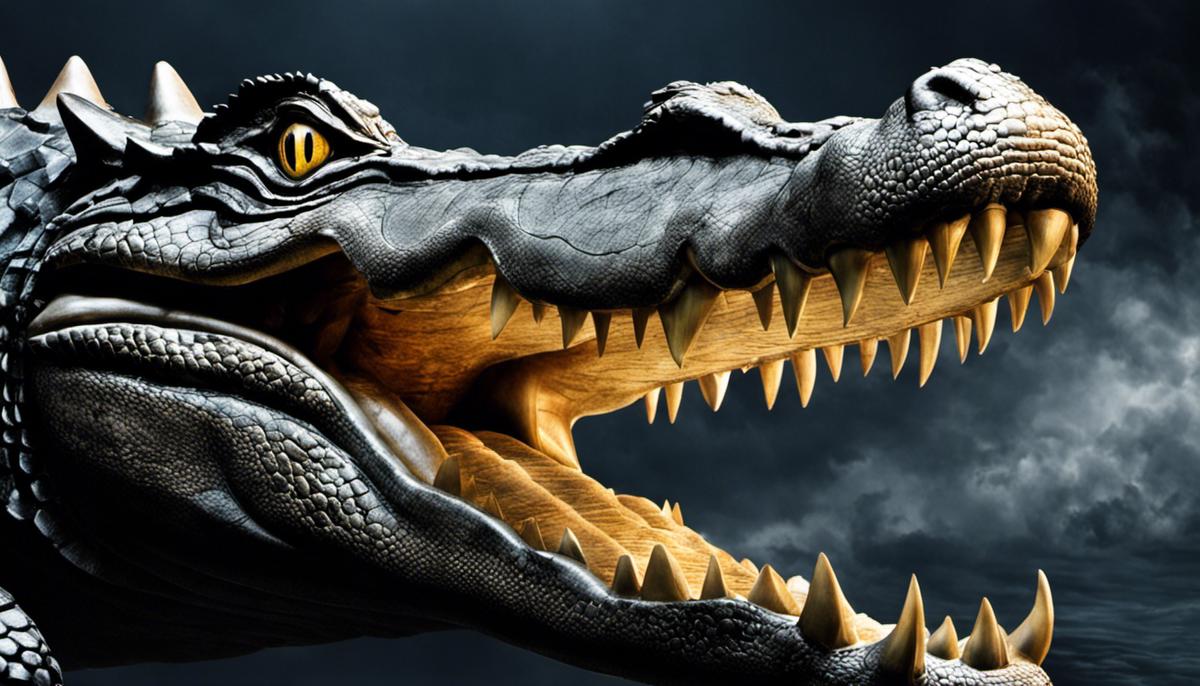
Biblical Dream Analysis
Dream analysis in a Biblical context can provide fascinating insight into the underlying themes and recurrent motifs in the scripture. The analysis of dreams, particularly those involving symbolic elements such as crocodiles, plays a crucial role in our understanding of Biblical narratives.
While part one of this exegesis focused predominantly on the crocodile’s portrayal as the ‘leviathan’ in the Book of Job, this part seeks to explore the breadth of its other appearances and significances within dreams in the context of the Bible, diving deeper into textual analysis as a form of dream interpretation.
The Book of Daniel, for instance, illustrates the importance of dream interpretation within the Biblical context. Some of the most seminal Biblical narratives, including Nebuchadnezzar’s dream in Daniel 2, rely heavily on dream symbolism and subsequent interpretation.
Dreams, in biblical tradition, were seen as mediums of divine revelations or messages. For instance, Jacob’s dream at Bethel in Genesis underscores how dreams can serve as a conduit for divine communication. The concept of dream interpretation within the Biblical context revolved around deeply analyzing these divine communications to gain insights about imminent events or profound wisdom.
In contrast to how the crocodile was previously discussed, the Biblical dream narrative lacks any express mentions of dreams involving crocodiles. However, this does not detract from the potency of dream analysis in Biblical context – it instead challenges us to dig deeper. We must look at the broader sense of animal symbolism in dreams, with a particular focus on the fearsome and awe-striking creatures such as lions, serpents, or behemoth – creatures that might closely relate to the symbolic potency of the crocodile.
Profound messages were imbued in these dreams, which, in turn, required divine inspiration or revelation for correct interpretation. Such instances can be iterated through Pharaoh’s dream of fat and thin cows in Genesis, or Joseph’s dream of sheaves and stars that foresaw his destiny. In many of these accounts, the dreams’ symbolism are seen to communicate divine will, demonstrating God’s sovereignty and omnipotence.
This analysis extends our understanding of the symbolic constructs in the Bible, exploring how the might and terror invoked by the crocodile mirror other impactful animal symbolisms within the scripture. Thus, even in the absence of explicit crocodile dreams in the Bible, through dream analysis within a Biblical context, a deeper grasp of the intrinsic character of Biblical narratives can be attained.
Conducting a dream analysis within a Biblical context invites reflective interpretations, fundamentally attempting to reveal divinity’s inscrutable ways. Through this analytical lens, we are offered a unique perspective to navigate through the labyrinth of Biblical symbolism, divine revelations, and messages that often cloak themselves in metaphor and mystery. With such an understanding, we can further explore how dreams serve as crucial narrative devices in this realm. The enriching process of dream analysis thus brings us closer to unraveling the complex tapestry of the divine narratives within the Biblical context.

Interpretation of Crocodile Dreams in Biblical Context
With an entrenched fascination with symbolism in religious and spiritual contexts, attention veers to the mystical underpinnings of dreams, particularly the nuanced interpretations of specific symbols within the biblical paradigm, such as the crocodile. Considering the biblical narrative is replete with metaphors and dream narratives infused with divine revelations, the study of dream symbols, such as the formidable crocodile, becomes an avenue for unearthing profound insights into the human-divine interface.
Ensconced within the Biblical narratives – from the enigmatic dreams of Nebuchadnezzar to Jacob’s ladder – dreams serve as conduits of divine communications, infusing each narrative with layers of symbolism waiting to be unraveled. This notion is not dissimilar to dream interpretation in a modern psychological sense – mirroring the importance placed on dreams as a means to uncover subconscious realities or significations. The incorporation of animals in biblical dreams, akin to the crocodile, adds a tangible, yet multifaceted depth to these narratives.
However, the symbolism of animals should not be taken literally, underscoring the importance of reflective interpretations in place of simplistic translations. Grounded in the knowledge of historical, cultural, and religious contexts, dream analysis unravels the complex tapestry of these divine narratives. The crocodile, for example, is not just a feared predator but a complex symbol, reminding the dreamer of the potent undercurrent of divine omnipotence and judgement.
Navigating through the realm of biblical dream analysis can seem akin to traversing a labyrinth, marked by metaphoric intricacies and puzzling possibilities. The symbolic interpretation of the crocodile extends beyond its personification as the ‘leviathan’ or God’s instrument of divine judgement. It emerges as an instructive symbol, telegraphing divine messages and cautionary tales, its ominous presence indicative of thoroughgoing changes or challenges on the horizon.
In unpacking each detail of the dream, such as the environment, the person’s interaction with the crocodile, and the emotions encompassing the dreamer, Biblical dream interpretation adopts a comprehensive approach. The menacing power of the crocodile in dreams can be seen as a reminder of life’s battles that must be confronted with courage, faith, and resilience. In this context, the crocodile is not just an omen of danger or judgement but a call-to-action, a prompt to face fears and adversities with divine fortitude.
In conclusion, Biblical dream analysis, while complex, serves as a profound platform for understanding allegorical narratives intricately woven with divine messages and metaphors. The crocodile in dreams encapsulates the raw and formidable force of nature, symbolizing an inherent strength which, when acknowledged, can empower an individual to confront life’s challenges head-on. The amalgamation of cultural, historical, and biblical contexts elucidates the deeper meanings, enmeshing the dreamer into a wide web of divine narrative and interpretation.
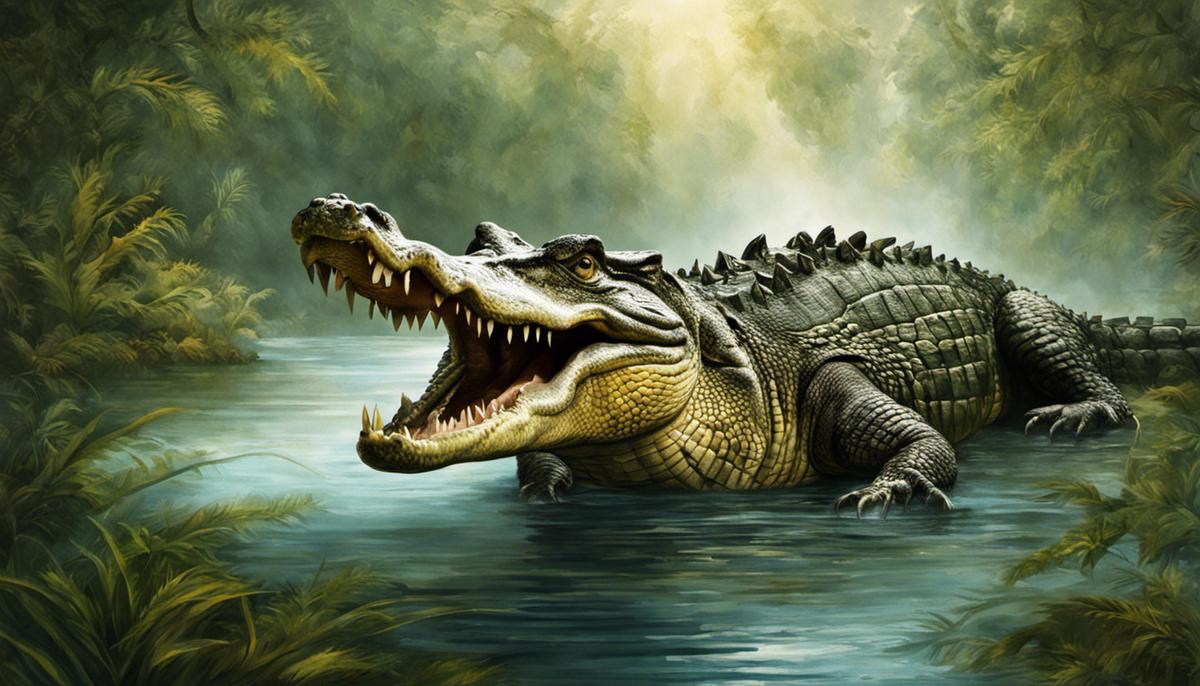
Application and Relevance to Modern Day
The crocodile, in its various interpretations and symbolic representations, offers an interesting pathway towards understanding not just spirituality and religion, but human interactions and perceptions. The depth of context and diversity of cultures involved in these interpretations ascertain that the symbolic embodiment of the crocodile remains as relevant in contemporary times as it was in historical references.
The dynamic relevance of such symbolic interpretations beckons a necessary appraisal of the utilization of these symbols in contemporary environments. At first glance, the significance of ancient interpretations might seem to evade the current era, bereft of its original context like a fish out of water. However, the power of symbols lies in their capacity to transcend time and space, mirroring their importance in varied contexts, including spiritual insight and contemporary life.
Spiritual insight stems from the understanding that there is more to life than mere physical existence. It hinges on understanding the deeper layers of existence and progressing toward personal and universal enlightenment. Ancient and historic symbols, like the crocodile, pave pathways towards this understanding.
In an era where globalization has ushered in an amalgam of cultures and beliefs, ancient symbolism provides a tool for navigating our complex world. It helps to articulate nuanced emotions, experiences, and states of being. A symbol as versatile as the crocodile fosters otherness, embodying strength and power, resistance, and unpredictability.
For instance, consider the symbolism of the crocodile as an entity representing divine omnipotence and judgement. This ancient understanding is deeply relevant today as it inspires individuals to recognize and acknowledge the existence of powers greater than themselves. This realization aids in cultivating humility, respect, and profound gratitude, crucial for navigating today’s highly competitive and often chaotic world. Furthermore, these symbols arouse a deep consciousness in individuals of their actions, retreading the path towards moral righteousness.
Within dreams, the crocodile might appear menacing or instill a sense of fear, much like the adversities and challenges one faces in life. Yet these dream interpretations prompt an introspective call-to-action, a signal for individuals to face their fears and demonstrate fortitude in overcoming obstacles befell on their life journey. Hence, the crocodile marrying strength with menace serves as a perfect embodiment of the lows and highs of life’s journey.
Moreover, dream analysis, seeped heavily in Biblical contexts, explicates and demystifies allegorical narratives. Dream interpretation is a powerful tool that uncovers subconscious realities and exploration of self’s deeper, often hidden layers. As the multifaceted interpretation of the crocodile in dreams transforms into a guide, it cultivates spiritual growth and self-understanding.
The understanding of ancient symbols and their interpretations helps to lay a foundation for universal comprehension and acceptance of varying cultural ideologies. In a world that is fast forgetting the importance of unimpeded communication and mutual respect, these symbol interpretations could direct one toward holistic understanding and empathy.
Overall, the rationale and profoundness behind symbolic representations like the crocodile add substantial depth to the discourse on contemporary life and spiritual insight. They link universal truths across time and space, strengthening our understanding of human existence, spirituality, and morality, and resonating very strongly with the complex tapestry of contemporary life. These narrations affirm that we continue to reside in a diverse world brimming with untold wisdom that unveils itself subtly through symbols as potent as the crocodile.

It is fascinating to note how ancient symbolism transcends through generations, etching deeper significance into our dream narratives. Understanding these symbols, such as the crocodile, within the cultural and historical confines of sacred biblical context, extends our perspective, enriching our interpretations. However, these explorations are not merely scholarly. They pave the way to spiritual introspection and offer potential directives for contemporary Christian life, aligning actions with symbolic implications. Laced with theology, culture, and historical reference, the biblical interpretation of crocodiles in dreams emerges as a profound study with extraordinary relevance to the modern believer.

